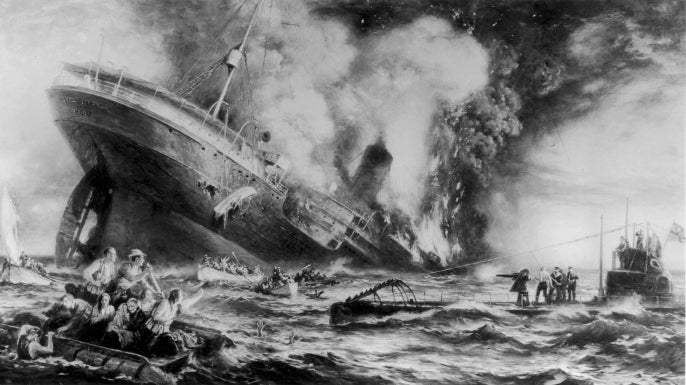What Was the Result of the Lusitania Sinking?
The sinking of the RMS Lusitania on May 7, 1915, remains one of the most significant maritime disasters in history. This tragic event, which resulted in the loss of 1,198 lives, had profound implications on World War I and the global geopolitical landscape. This article delves into the immediate and long-term consequences of the Lusitania's sinking, exploring its impact on public opinion, diplomatic relations, and the course of the war.
Immediate Impact
Casualties and Loss
The immediate result of the Lusitania sinking was the tragic loss of 1,198 passengers and crew members. The German U-boat U-20 torpedoed the British ocean liner off the coast of Ireland, causing it to sink within 18 minutes. Among the dead were 128 Americans, a fact that significantly influenced international reactions.
Public Outrage
The sinking sparked a wave of public outrage, particularly in the United States and the United Kingdom. The loss of civilian lives, including women and children, was perceived as a brutal act of war. This event shifted public opinion against Germany and its unrestricted submarine warfare tactics.

what was the result of the lusitania sinking
Diplomatic Consequences
Strained US-German Relations
The loss of American lives aboard the Lusitania significantly strained diplomatic relations between the United States and Germany. President Woodrow Wilson and the US government demanded an end to Germany's unrestricted submarine warfare and sought reparations for the American victims.
Germany's Temporary Policy Shift
In response to international condemnation, Germany temporarily halted its unrestricted submarine warfare policy. The German government issued the Arabic and Sussex pledges, promising not to target passenger ships without warning. This shift was an attempt to appease the United States and avoid further escalation.
Long-term Effects
US Entry into World War I
While the Lusitania sinking did not immediately lead to US entry into World War I, it played a crucial role in shaping American attitudes towards the conflict. The event contributed to the growing anti-German sentiment and laid the groundwork for the US declaration of war against Germany in April 1917.
Propaganda and Recruitment
The Lusitania disaster became a powerful propaganda tool for the Allied Powers. Posters and speeches highlighting the atrocity helped to galvanize support for the war effort and boost military recruitment. The event was portrayed as a symbol of German aggression and barbarity.
Changes in Naval Warfare
The sinking of the Lusitania underscored the dangers of submarine warfare and led to changes in naval strategies. The British Royal Navy and its allies increased efforts to develop anti-submarine measures, including the use of convoy systems to protect merchant and passenger ships from U-boat attacks.

what was the result of the lusitania sinking
Historical Significance
Legacy of the Lusitania
The Lusitania sinking remains a poignant reminder of the human cost of war and the vulnerabilities of civilian maritime travel during wartime. The event has been the subject of numerous books, documentaries, and films, reflecting its lasting impact on collective memory.
Influence on International Law
The tragedy also influenced international maritime law, contributing to discussions on the protection of civilian lives during armed conflicts. The event highlighted the need for clear rules and norms regarding the treatment of non-combatants in war zones.
Conclusion
In conclusion, the sinking of the Lusitania had far-reaching consequences that extended beyond the immediate loss of life. It significantly influenced public opinion, strained diplomatic relations, and contributed to the eventual involvement of the United States in World War I. The disaster also prompted changes in naval warfare tactics and had a lasting impact on international law and collective memory. The Lusitania remains a symbol of the perils of war and the importance of protecting civilian lives in times of conflict.